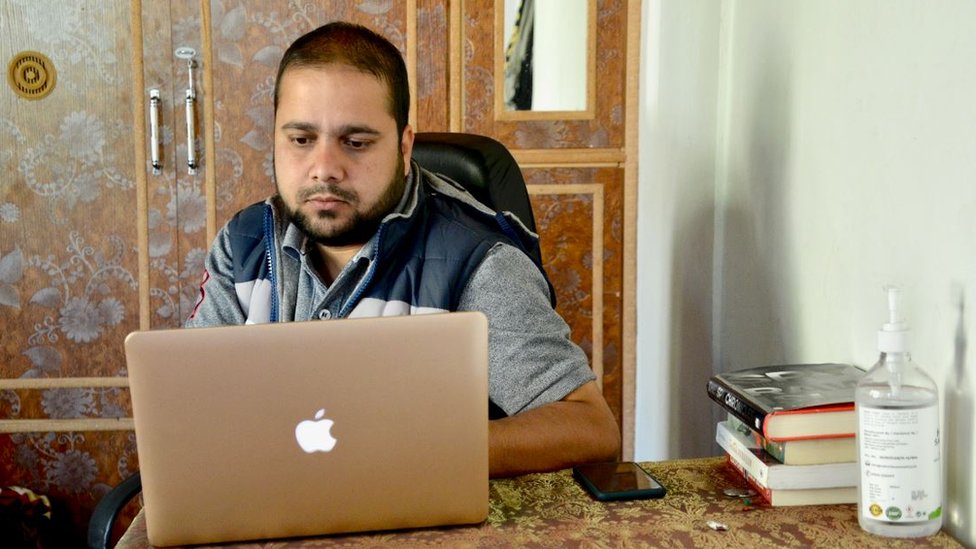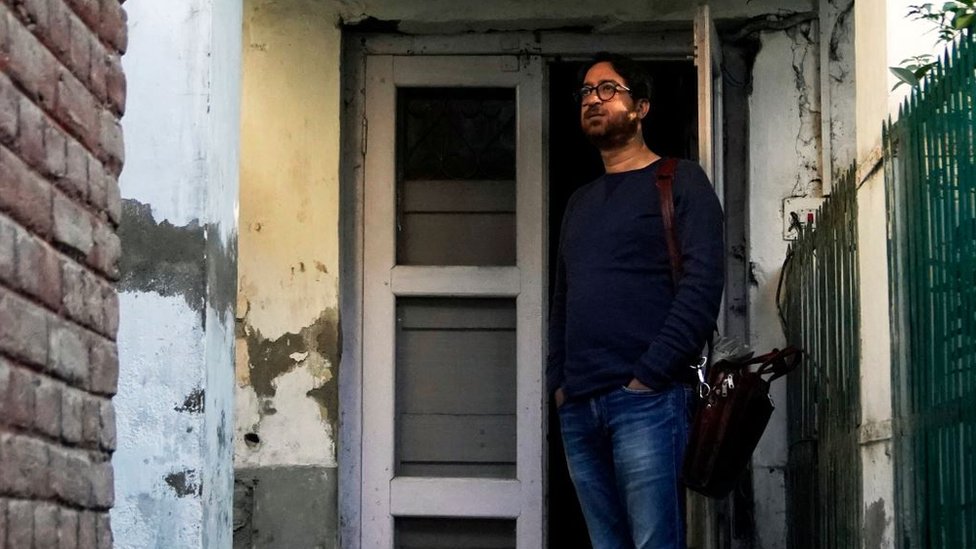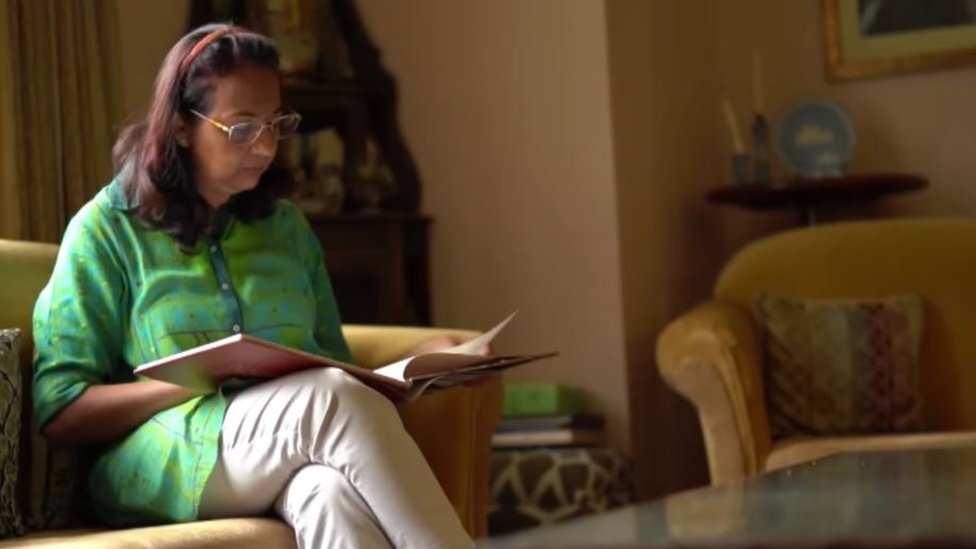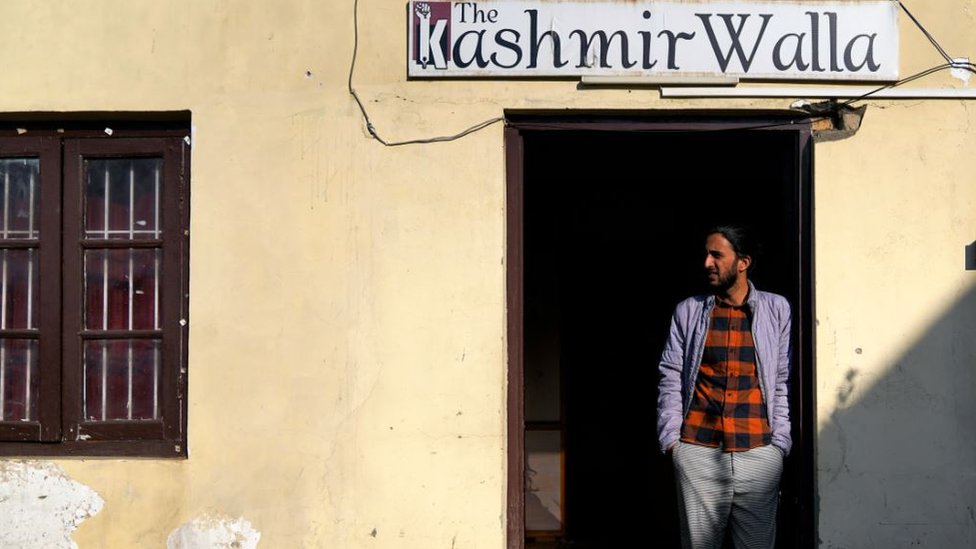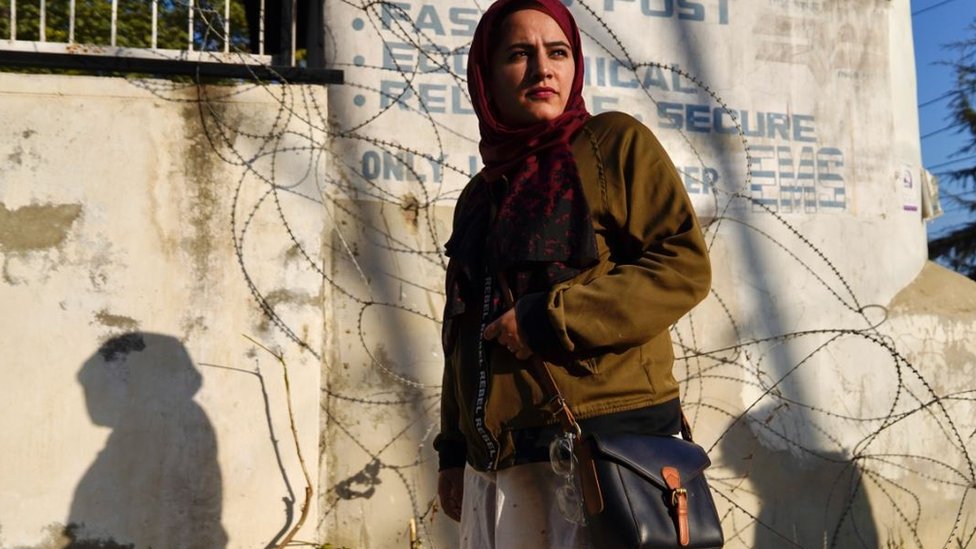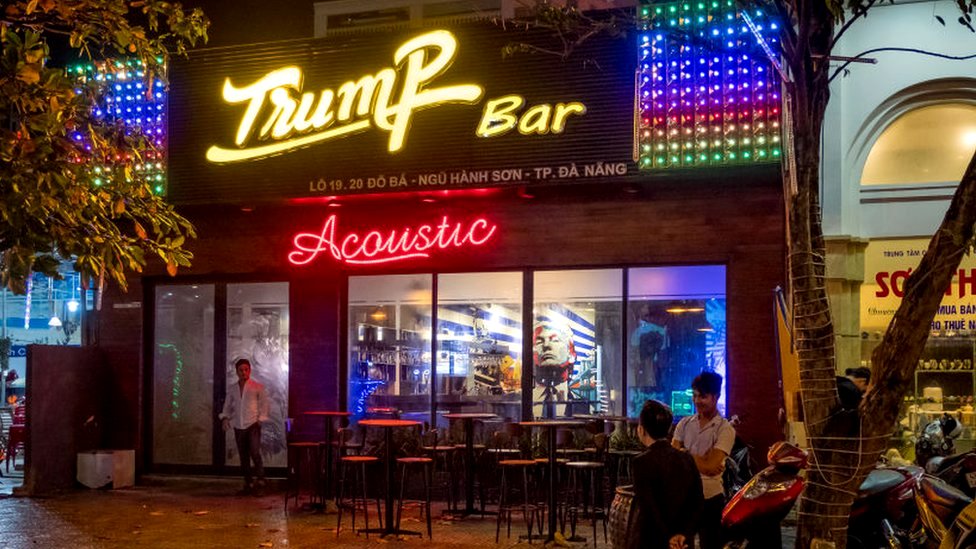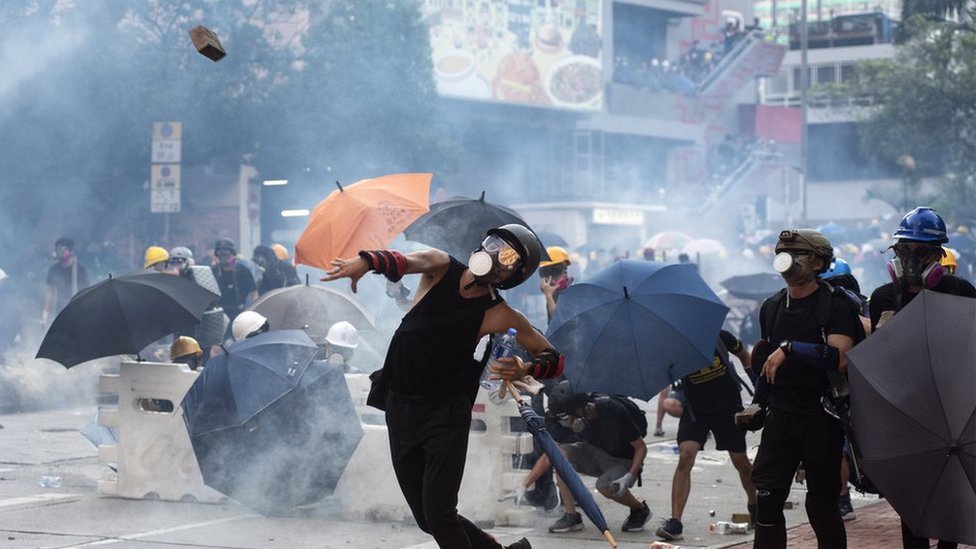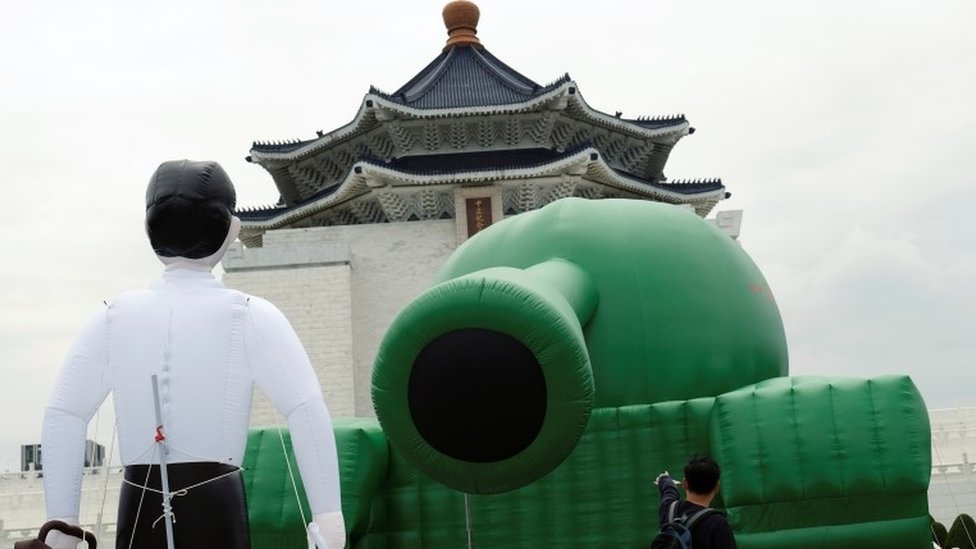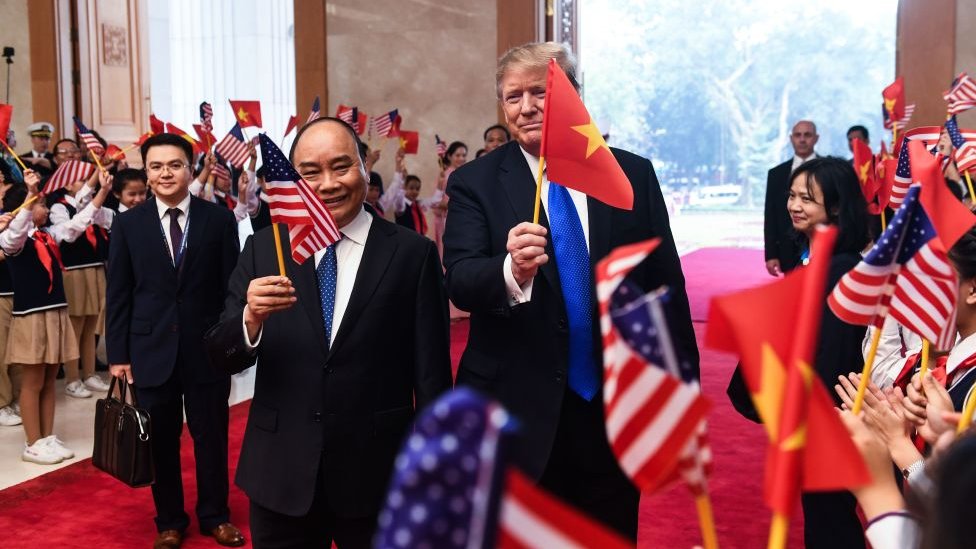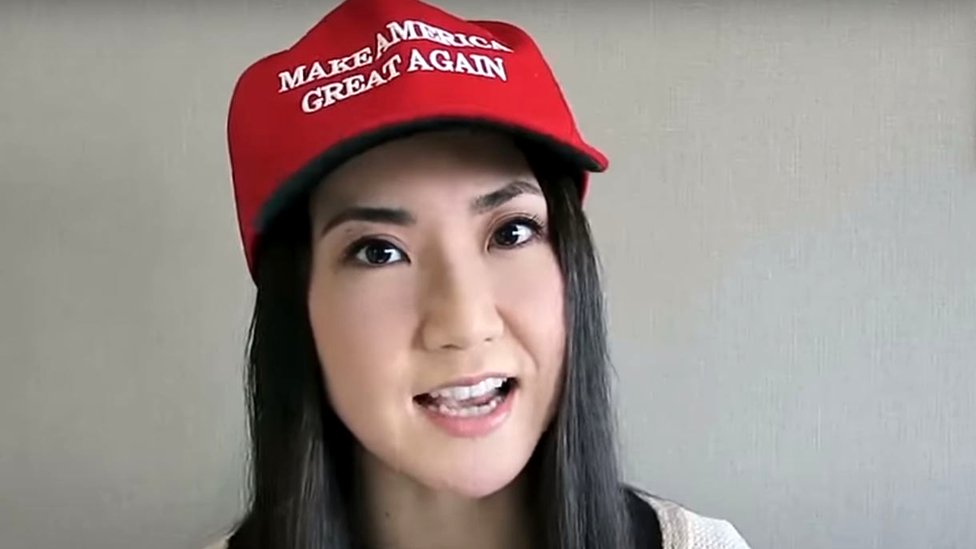Journalism has become especially risky in Indian-administered Kashmir since the federal government stripped the region of its special status in August last year.
That seemed evident this week when India's top anti-terror agency searched the offices of the Greater Kashmir newspaper and the home of AFP journalist Parvaiz Bukhari.
In all, India's national investigative agency searched nine locations, including NGOs and homes of leading activists, in Srinagar city, the region's capital. It said the raids were based on "credible information" that these organisations and people were receiving funds from abroad that were allegedly being used to support "secessionist and separatist activities".
But critics say what's worrying is that the raids come amid a larger crackdown on free speech and dissent in the valley. In the past year, at least 18 reporters have been questioned by police and more than a dozen were allegedly assaulted.
Five journalists tell the BBC their stories.
Auqib Javeed, 28
Auqib Javeed was summoned to Srinagar's cyber police station in September.
He says the police wanted him to change the photo and headline in a recent story he had reported for the news website, Article 14. It was about how dozens of Kashmiri Twitter users had gone silent after being questioned by police for their posts on Article 370 - the constitutional provision guaranteeing Kashmir its special status that the Indian government revoked.
Mr Javeed says the police accused him of using an incorrect image of the station in the story. He said he felt like he was a "hostage" and a masked policeman slapped him.
The police in a statement said these allegations were "misleading and factually incorrect". They also said in a statement that the headline, the image and some aspects of the story were also "factually incorrect" and "misleading".
Mr Javeed says he eventually called his editor and asked for the changes. The original headline, The real cyber bully: Police in Kashmir question Twitter users, was changed to Police question Kashmir Twitter users for "anti-government' posts". Article 14 also carried an apology for using the wrong photo of the station.
"If it was just about the image, the police could have sent us a clarification and we would have changed it," Mr Javeed says.
"Whenever a journalist is harassed or beaten, nobody is held accountable. That's why journalists are being questioned very often now."
Peerzada Ashiq, 39
In April, police in Srinagar registered a complaint against Peerzada Ashiq, a journalist at The Hindu, a national daily.
At issue was a recent story in which Mr Ashiq had reported that the government had allowed the bodies of two alleged militants to be exhumed by their families. The men had died in a gunfight with security forces but they were buried in unmarked graves. Officials said they would not hand over the bodies to prevent large funerals that could aggravate the pandemic.
But one of the men's relatives told Mr Ashiq that they had been granted permission to exhume the bodies for last rites. Mr Ashiq says he had a copy of the family's application, but officials did not respond to his queries.
When the story was published, police said it was "fake news" that "could cause fear or alarm in the minds of public". They also accused Mr Ashiq of publishing it "without seeking confirmation from the district authorities", although the story did say that officials had not responded to requests for a comment.
The Hindu later issued a clarification, explaining that the families had misunderstood permission to visit the graves as sanction to exhume the bodies.
But by then Mr Ashiq had been summoned twice to a police station - one in Srinagar and one in Anantnag, 60km (37 miles) from his home.
The questions were relentless and intimidating, he recalls. The second visit was also much longer.
"They asked me the same questions repeatedly. It was around 10:30pm when they let me go," he said.
He said that authorities could have rung or emailed, asking for a correction. "But it seemed that they wanted to turn the process into a punishment."
He says the case against him is still open.
"They say my name isn't mentioned but they're not closing the case, which means they can summon me whenever they want."
Anuradha Bhasin, 52
On 19 October, authorities sealed the Srinagar office of Kashmir Times, a local newspaper, where Anuradha Bhasin is executive editor.
Ms Bhasin says she was given no reason for the eviction and that it was done with no prior notice. She alleges that it is an "intimidation" tactic.
The paper's offices in the neighbouring region of Jammu are still open, but staff in Srinagar have been working from home because their office has been closed by athorities.
Officials did not respond to the BBC's request for a comment.
But the Editors Guild of India said in a statement that the move had "disturbing implications" for media in the valley. And Ms Bhasin herself believes the sealing of the office is a "vendetta" for speaking out.
In 2019, she had petitioned the Supreme Court, challenging the communication blockade in the valley - landlines, mobile internet and social media were suspended, severely restricting media coverage.
"The day after I went to court, government advertisements in the newspaper were stopped by authorities," she said. "They want to control the narrative."
Fahad Shah, 30
Fahad Shah was questioned by the police after he reported on a gunfight between militants and security forces that destroyed many homes in Srinagar in May.
Mr Shah is the founder and editor of The Kashmir Walla, a weekly magazine and website.
At least 15 houses were destroyed, according to his report. And in a video the site published, locals accused police of stealing their jewellery.
Mr Shah says within days, the police accused him of "defaming" them.
"When the gunfight happened, all lines of communication were suspended. How could we contact the police? And even if police had responded to the allegations, we would have published it."
A few weeks later, he was summoned to another police station and questioned again. This time, he said, the complaint accused him of "fake news and inciting violence".
Earlier this month, Mr Shah was again detained for four hours. He says he does not know why.
The BBC reached out to the police, but there was no response.
"Getting called, harassed and questioned is not surprising anymore - it is slowly becoming the norm," Mr Shah said.
Masrat Zahra, 26
"Nobody dares to speak now. I personally know many people who have quit journalism because they [police] have created such an atmosphere among the fraternity," says Masrat Zahra, a photojournalist.
In April, police registered a complaint against her under the draconian Unlawful Activities Prevention Act or UAPA - she is accused of "uploading anti-national posts with criminal intention".
The post in question was an image on Instagram from 2018. It was from a religious procession and showed mourners holding up a poster of Burhan Wani, a militant who had died two years before.
Wani's death sparked widespread protests in the region. The 22-year-old had the support of many locals who were protesting Indian rule in the valley and his death in a gunfight with Indian security forces made many consider him a martyr for the cause.
It's unclear why the post led to a case against Ms Masrat years later. She has not been arrested yet but the case is still open. "I have this threat in my mind that they can detain me anytime," she says.
"I think, through me, they want to send a message to the journalist community - that we have not spared a girl, so it can be done to anyone."
